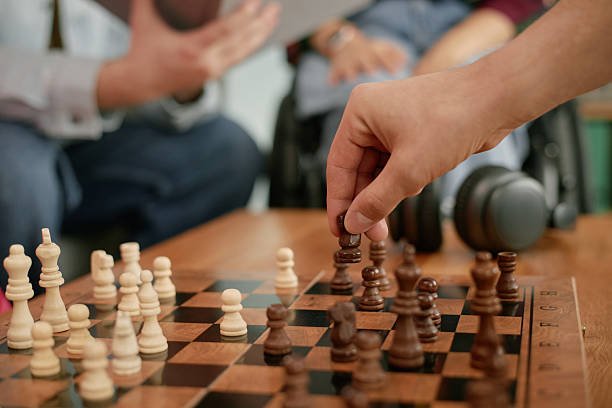If you live in Stockholm and want strong, simple chess training for your child—or for yourself—this guide is for you. In a few minutes, you will see the best ways to learn chess today, what to avoid, and how to pick a coach who speaks in clear, calm words. You will also see why online chess classes, when done with a real plan and a caring teacher, can help you learn faster than most local options.
At Debsie, we teach chess in small, friendly steps. We use easy language. We focus on good habits: look for danger, make a plan, think before you move, stay calm when the clock is low. Our FIDE-certified coaches teach live, give personal feedback, and follow a clear path from beginner to tournament level.
We also run regular online events so students in Stockholm can practice often and grow with confidence. It feels close and human—like one-on-one help—even when you join from home.
Online Chess Training
Online chess training is simple when it is built with care. You sit at home with a laptop or tablet. You join a live class with a real coach. You see the coach’s board. You move your pieces. You ask questions.
The coach gives feedback right away. There is no commute, no parking, no rush. You save energy for learning, not for travel. This matters on school nights in Stockholm when the day already feels full.
The heart of good online training is structure. A strong program does not jump around. It follows a clear path. First, you learn to keep your pieces safe. Next, you learn to see tactics like forks and pins in under three seconds. Then you build opening understanding, not long lines to memorize, but simple plans you can trust.
After that, you grow endgame skill so you can finish a good game the right way. The coach ties it all together with a calm thinking routine you can use in any position. Each step connects to the next. Nothing is random. Nothing is left to chance.
The tools make this easy. A shared board lets the coach draw arrows, highlight danger squares, and freeze the moment so you can think. You play short training games with time controls that fit your level. You solve puzzles picked for you, not for the whole room.
You can watch the recording if you miss a class or want to review. You can send a game to your coach and get notes the same day. These short feedback loops turn small lessons into real skill. You try. You get a tip. You try again. You improve.
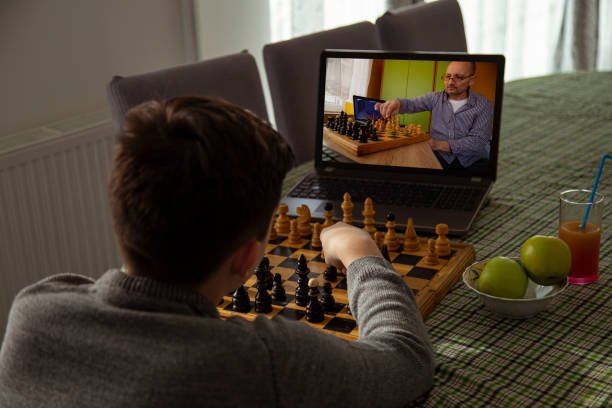
Landscape of Chess Training in Stockholm and Why Online Chess Training is the Right Choice
Stockholm has a rich learning culture. Many schools support clubs. Libraries run events. Local groups meet in community rooms and cafés.
On some weekends, you will find children and adults playing friendly games over the board. This is good for the city. It keeps chess visible and warm. It gives families a place to meet others who love the game.
But families often face gaps. Travel takes time, especially on winter evenings. Group levels are mixed. A beginner sits next to a much stronger player and gets lost. A stronger player waits while basics are explained again. The pace jumps up and down.
Sessions may be led by good players who do not have a clear teaching plan. You might watch a nice game, solve a few random puzzles, and go home unsure what to practice next. A week later, the topic changes again. The thread breaks.
Online training fixes these common problems. You get level-based classes that truly match your child. You get a written path that shows where you are and where you are going. You get homework that fits your level and your week. You get fast feedback on your own games, not just on a famous player’s moves.
You can mix this steady home rhythm with local, over-the-board play when you want the feel of a real board and a ticking clock. The two modes can work together well. Learn online during the week. Play in person once in a while for fun and experience.
Stockholm parents tell us they value clarity. They want to know what was learned today, what to do before the next class, and how to measure progress without stress. A strong online program gives that. You receive a short note after class.
How Debsie is the Best Choice When It Comes to Chess Training in Stockholm
Debsie sits first because we mix structure with heart. We teach in very simple words. We move one small idea at a time. We praise honest effort. We give kind, direct feedback. We never leave you guessing about the next step.
Our curriculum is written from the ground up for steady growth. We start by lowering blunders with safety checks and piece coordination. We sharpen pattern vision so tactics jump out fast. We teach opening ideas as plans you can remember under pressure.
We build endgame strength so wins do not slip away. We shape time use so the clock becomes a helper, not a stress. We bring all this together with a thinking routine that the student can repeat in any position. This routine is simple, clear, and powerful: scan for danger, list candidate moves, pick a plan, and only then move.
Every class is live and interactive. Our FIDE-certified coaches call students by name, ask short questions, and invite them to move pieces on the shared board. We keep classes small. No one hides.
No one gets left behind. When a child feels shy, we offer a gentle way to answer. When a teen shows energy, we guide it into clean, logical analysis. We build confidence by stacking tiny wins. One good decision at a time becomes a strong player over months.
Progress at Debsie is visible, not vague. After each class, parents receive a short summary. It shows the skill of the day, the practice task, and the next goal.
Students get a small assignment that fits a busy Stockholm week—maybe a five-minute tactic set, a short endgame drill, and one thirty-minute practice game to submit. We return notes quickly. We circle common slips and show a tiny exercise to fix them. This is how real change sticks.
We host bi-weekly online tournaments that feel friendly and firm. Students learn to handle the clock, test their plans, and manage nerves in a safe setting. After each event, we review key moments together. We point out a smart retreat that saved a piece.
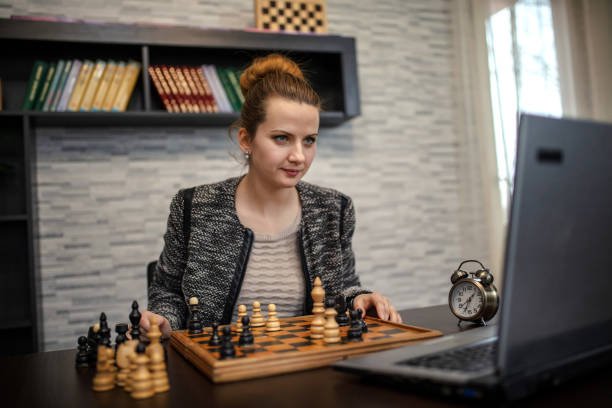
Offline Chess Training
In-person chess has a classic charm. You sit at a real table. You hear the clock click. You shake hands. You look your partner in the eyes and feel the calm of a quiet room. For many families in Stockholm, this feeling is special.
A child may enjoy the sound of pieces on a wooden board. A parent may like the routine of going to a club on a set day. When the room is well run and the group is small, these evenings can be nice.
But the daily reality is harder. After school, the city is busy. Coats, boots, and bags slow everyone down in winter. The train is crowded. Driving takes time. Parking is not always simple. By the time you arrive, your child may already feel tired.
A late start breaks focus. A crowded room adds noise. If the group has mixed levels, teaching can swing too fast or too slow. A beginner hears terms that make no sense and feels lost. A stronger player waits for long explanations and feels bored. The pace is uneven and the hour disappears quickly.
In many rooms, the tools are basic. A coach might use a demo board. It works for showing ideas, but it is not easy to rewind five moves, jump to a related pattern, or save the exact moment where your child got stuck. You may try to take notes in a notebook.
Later you cannot connect those notes to your child’s next game. The lesson floats away. There is no recording to revisit. There is no practice dashboard to guide the week. Without those supports, a child learns a little during class, then the idea fades.
Time is the quiet cost. A one-hour class can take two hours door to door. On a school night, that pushes dinner late and cuts sleep short. Tired minds make careless moves. Over many weeks, this hurts more than any single mistake. A child who is rested, warm, and calm learns faster than a child who is rushed and cold.
Feedback loops are slow in offline settings. Your child might play a game at home that same night and blunder a piece. There is no quick way to show the coach and get a clear tip. The question sits for a week. The habit stays. Good learning needs short loops.
Drawbacks of Offline Chess Training
The first drawback is time lost to travel. Even a short ride there and back turns a one-hour lesson into a two-hour block. Add winter coats, snow, and darkness, and the effort grows. This time comes from homework, dinner, and rest. Over a term, the cost is large.
The second drawback is uneven groups. When levels mix, a new player gets overwhelmed and a strong player gets restless. A coach does their best, but cannot split into many teachers at once.
The result is a room where no one gets the perfect stretch. Online programs can place students by level across many time slots. That means better matching and smoother lessons.
The third drawback is a weak or missing roadmap. Some local groups choose a nice topic for the day but do not connect it to last week or next week. You might see a famous game and a few cute tactics.
It is fun, but what should your child practice tomorrow? Without a written path and a simple tracker, the lesson feels like a show, not a plan.
The fourth drawback is slow feedback. In a typical offline setup, a student plays many games between classes with no clear review. Mistakes repeat. Bad habits grow roots. In a strong online setup, students submit one or two games and get comments quickly. That simple loop—play, review, repeat—builds skill like nothing else.
The fifth drawback is hidden costs. Transport, parking, and time off work add up. If your child gets sick or a school event pops up, the class is gone. Many places cannot offer easy make-ups. With online training, you can watch the recording, do the homework, and stay on track. The week does not fall apart.
The sixth drawback is limited sparring choices. You see the same faces each week. That is cozy, but not always the right match for growth. If your child needs a partner one small step stronger, that player may not be there on Tuesday at seven.
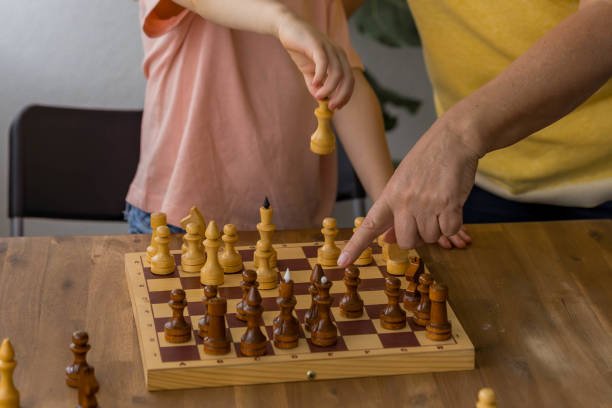
Best Chess Academies in Stockholm
Stockholm has a lively chess scene. You can feel it in schools, libraries, and weekend events. Many children learn their first moves in a club room. Teens test their skills in local tournaments. Adults return to the game after years away and find new friends over the board.
This is a city that cares about learning and community. That is wonderful. Still, when your goal is steady skill growth with low stress, you need structure, clear teaching, and a weekly plan that actually fits your life. This is exactly where Debsie leads.
We will start with Debsie at number one. Then we will share a few well-known Stockholm clubs and programs so you can see what each offers and how to blend local play with strong online training.
1. Debsie
Debsie stands at the top because we make chess learning clear, calm, and consistent for Stockholm families. Our live online lessons remove travel and keep energy for thinking, not for commuting. You join from home, meet a kind coach, and learn with simple words and a warm tone.
We follow a written path from first moves to tournament strength. Each session builds one small habit your child can use right away. This is how steady growth happens without stress.
The plan begins with safety. We lower blunders with a short check routine before each move. Then we sharpen pattern eyes. Your child learns to see pins, forks, skewers, and mates in three seconds or less. This matters because most games are decided by simple tactics.
We teach opening ideas as plans, not long lines that melt under pressure. We build endgame skill so your child can convert a lead with confidence and save tough positions with calm play. We add time skills so the clock feels like a helper, not an enemy.
We wrap it all in a clear thinking routine: scan for danger, list two or three candidate moves, choose a plan, and only then move. One voice, one path, one calm process.
Every class is live and interactive. Students move pieces on the shared board, answer short questions, and test ideas in quick drills. Our FIDE-certified coaches notice confusion early and explain the same idea in simpler words. Shy students get safe ways to answer.
Eager students get slightly harder tasks that stretch them just enough. Class sizes stay small, so each child is seen and heard. No one sits lost. No one is rushed. The pace fits the learner.
Progress is always visible. After each class, you receive a short note in plain language: what we learned, where your child did well, and a tiny practice plan that fits a busy Stockholm week.
You can submit the game for review and get clear comments. These fast feedback loops—learn, practice, play, review—build real skill. Over weeks, you hear your child explain ideas in their own words. Over months, you see cleaner games and calmer choices in sharp moments.
Community stays strong online when the room is well led. We host bi-weekly tournaments where students feel the clock, test their plans, and learn good sports manners. After each event, we review key moments together. We praise smart decisions.
2. SK Rockaden (Stockholm)
SK Rockaden is widely known as Sweden’s largest chess club and has run youth activities for many years, including school-based sessions in southern Stockholm. Families often hear about Rockaden because of its size, its wide mix of players, and its regular team trips to national events.
How Debsie compares: a big club can be inspiring, but size also means mixed levels and less individual attention on weeknights. Debsie gives you the steady, level-matched path at home, with clear weekly targets, recordings to review, and fast feedback on your child’s own games.
3. Stockholms Schacksällskap
Stockholms Schacksällskap is historic—one of the world’s oldest clubs—and still runs major events like the Stockholm Grand Prix. This heritage appeals to many chess lovers. If you enjoy classic club culture and want to feel part of a long tradition, Sällskapet has that charm and hosts well-organized competitions.
How Debsie compares: a strong event calendar is excellent for testing your skills, but events do not replace a weekly teaching plan. Debsie fills that gap with a simple curriculum, kind coaching, and practice tasks that fit your week. Train online with us; then use Sällskapet’s events for live experience.
4. Stockholm Chess Federation (Stockholms Schackförbund)
If you want a window into everything happening in the city, the Stockholm Chess Federation keeps parents and players up to date with junior news, calendars, and school-chess programs.
They promote activities like junior rapid championships and support chess in schools with materials and guidance. This is a helpful hub for finding local competitions and resources.
How Debsie compares: a federation site is a useful notice board, not a teaching program. Use it to pick a weekend event. Use Debsie to prepare with the exact drills, opening plans, and endgame tasks your child needs before that event. Together, this gives you both direction and opportunity.
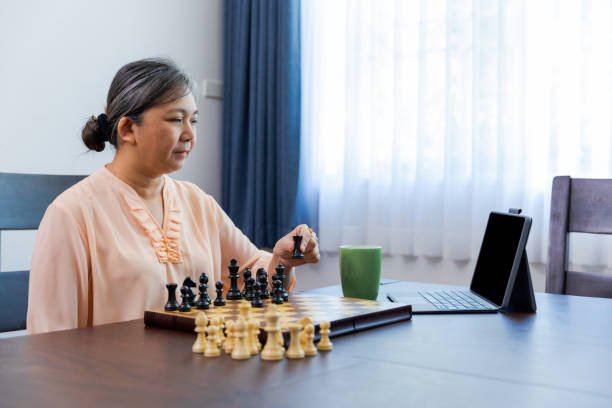
5. Wasa SK
Wasa SK is an active Stockholm club with teams across ages and strengths. You will see their juniors training and competing, including online team spaces for practice and tournaments. If you want a traditional club with an ongoing match rhythm, Wasa is a known name in the city.
How Debsie compares: a club team builds toughness over the board, but the teaching pace can vary and feedback often waits until the next meeting. Debsie speeds up the learning loop with weekly notes, recordings, and quick reviews of your child’s own games so mistakes do not take root.
6. Kristallens SK and Trojanska Hästen (Greater Stockholm)
Kristallens SK has deep roots in Södermalm and a lively junior program, with recent youth titles in national series. Trojanska Hästen, based in Täby, runs large junior events and regular Saturday trainings using a step-by-step teaching method and experienced instructors.
Both show strong energy for young players and host popular Junior Grand Prix events that draw big crowds. These are good places to feel the buzz of a real tournament day.
How Debsie compares: big junior events build excitement, but they do not create a personal weekly plan. Debsie keeps the routine simple and close to home. We teach one clear idea, give a tiny assignment, and review your child’s actual games.
Why Online Chess Training is the Future
Online chess training fits how children and teens in Stockholm live and learn today. It is calm, flexible, and personal. It removes the long trip and the winter rush. It turns your living room into a quiet classroom.
Most of all, it gives your child a steady path with quick feedback so small wins add up every week. When learning feels simple and close, students keep going. When they keep going, they grow.
The first reason the future is online is access to the right coach. In one city, your choices are limited. Online, you can study with a patient, certified coach who speaks in very clear words and understands how to help when a child gets stuck.
You do not have to choose the nearest coach. You can choose the right coach. That one change—coach fit—can decide everything. A kind voice, a neat plan, and a steady pace can turn a shy beginner into a brave, thoughtful player in a few months.
The second reason is structure you can see. A strong online program shows you the roadmap from day one. You know the skill of the week. You know the tiny task for home. You know what happens next class. You can rewatch the recording. You can submit your game and get notes quickly.
This is not just convenient; it is how the brain learns best. Try, get feedback, try again soon. Short loops beat long gaps. When you can see the plan and see progress, stress falls and energy rises. Children feel safe to try. Parents feel safe to support.
Too hard makes fear. In small local rooms, mixing levels is common. Online, we can place your child in a group that truly fits and move them as they improve.
We can also match practice partners by strength so every game is a fair fight. This is where confidence is built. You want your child to fight and to see that effort turns into results. Tight matching makes that happen.
How Debsie Leads the Online Chess Training Landscape
Debsie leads by keeping everything simple, human, and structured. We built our program for families who want real progress without weekly stress. We speak in plain words. We move in small steps. We match levels with care.
We make practice short and focused. We give feedback fast. We track progress in ways that make sense to parents and to kids. Nothing we do is magic; it is steady, thoughtful teaching done well every week.
Our roadmap is the backbone. From the first session, your child enters a level that fits. We start with board safety so blunders drop. We build pattern eyes so tactics appear fast. We teach opening plans that you can recall even when the clock is low.
We shape endgames so wins are closed and tough positions are saved. We coach time use so panic fades. We tie it all together with a thinking routine the student can repeat under pressure.
This routine is short and clear: check for danger, list candidate moves, choose a simple plan, and then move. We repeat it until it becomes second nature. When thinking is clean, results improve.
Our coaches are patient and certified. They know chess well, but more importantly, they know how to teach it to a seven-year-old, a ten-year-old, or a teen who wants depth. They listen. They notice when a child is confused.
They show the same idea in a simpler way. They invite students to speak, to move the pieces, and to explain their thought. They give praise that is real and feedback that is kind. They make the class feel safe. In a safe room, students try. When they try, they learn.
Our community rhythm adds energy without noise. Every two weeks, we run online tournaments. Students feel the clock, test their plans, and learn tournament manners. Afterward, we review a few key games together.
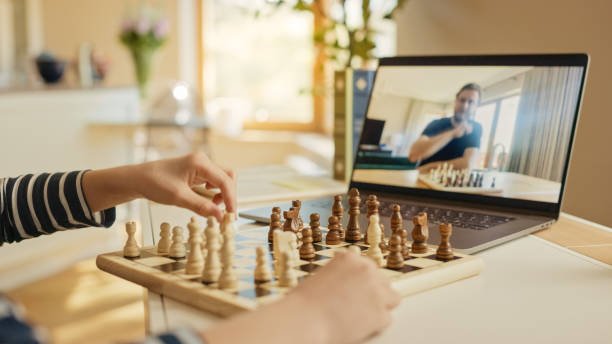
Conclusion
If you live in Stockholm and want steady chess growth without stress, choose a path that is clear, kind, and easy to keep. Choose a coach who speaks in simple words, shows one small idea at a time, and gives gentle, direct feedback. Choose a program that fits your week and makes practice feel light. That is the Debsie way.
You have seen how online learning removes the commute and keeps energy for thinking. You have seen how a written roadmap, short tasks, and quick game reviews turn small lessons into real skill.
You have seen how bi-weekly tournaments build courage, and how calm habits—check for danger, make a plan, breathe, then move—help not only in chess but also in school and life.
You have seen how local clubs and events are perfect for weekend play, while the daily build happens best at home with a caring online coach. When you blend the two, your child gets the warmth of the board and the power of a steady plan.
At Debsie, we start by listening. We place your child in the right level. We keep classes active and human. We send short notes after each session so you always know what to do next. We keep practice brief and focused so it fits a busy Stockholm evening.
Comparisons With Other Chess Schools:
